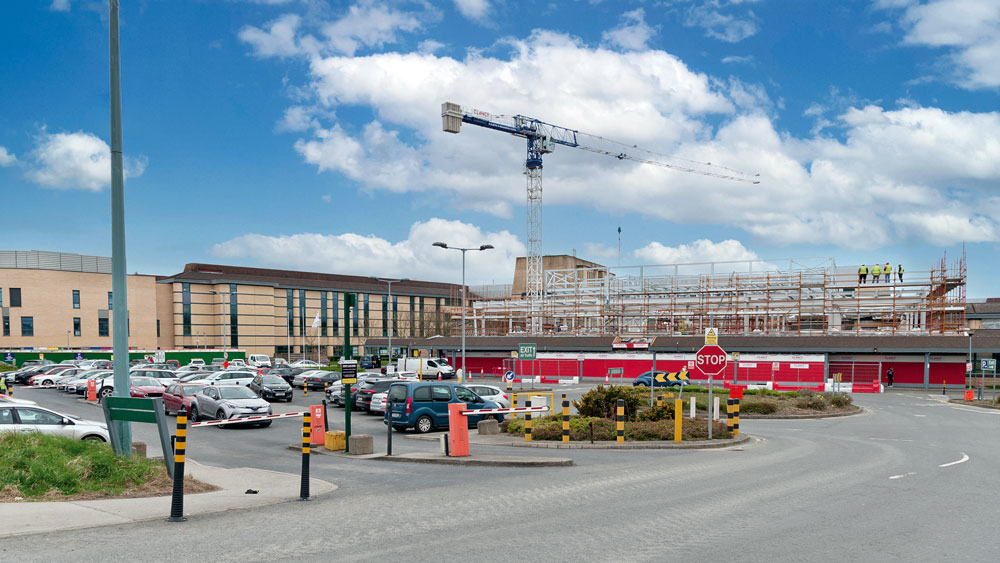
Inspections report on health service includes Tallaght University Hospital
POOR physical infrastructure, capacity issues and workplace challenges ‘hindered’ the work of Irish hospitals in responding to the Covid-19 pandemic, according to HIQA, reports Mary Dennehy.
This week, health watchdog HIQA (Health Information and Quality Authority) published an overview report on the monitoring and regulation of healthcare services in 2020.
HIQA carried out 66 inspections in healthcare services last year, with key findings including longstanding issues such as capacity and resourcing deficits, long waiting lists, overcrowding problems in hospitals and poor infrastructure and physical environment.
Of the 66 inspections, 14 were in acute hospitals, including Tallaght University Hospital (TUH) – which had an unannounced inspection in December 2020.
As reported in The Echo in April, HIQA identified “numerous weaknesses” in infection prevention and control measures implemented at the local hospital to protect staff and patients against Covid-19.
HIQA noted that the hospital had experienced a total of 19 outbreaks of Covid-19 from March to December 2020 – with five outbreaks ongoing at the time of the inspection.
Seven months down the line since HIQA’s visit, 97 per cent of recommendations have been actioned by the local hospital.
According to TUH, which has published its implementation schedule on its website, the aim is to complete the remaining three per cent by the end of 2021.
While operational and infection prevention issues were flagged at TUH, a number of concerns linked to capacity and isolation facilities at the local hospital.
A need for additional capacity and a lack of adequate isolation rooms in Tallaght has been flagged pre-Covid, with the 2020 pandemic heightening the necessity for what has been discussed, reported and recommended for years.
HIQA’s Director of Regulation, Mary Dunnion said: “The Covid-19 pandemic required HIQA to change our inspection plans in 2020 to focus on the challenges posed by the pandemic.
“In most instances, we found an effective approach to adapt to this unprecedented crisis in hospitals.
“However, hospitals’ efforts were made more difficult due to underlying historic problems with infrastructure, limited bed capacity and unequal or limited access to specialist workforce input and advice – problems that HIQA’s prior monitoring work against national standards has consistently highlighted.”
TUH currently has a proposed 72-bed building, made up of single rooms, at cost analysis stage with the HSE, a capital project that if approved would help address both capacity and isolation challenges at the hospital.
In a comment to The Echo, a spokesperson for the Dublin Midlands Hospital Group said: “The Dublin Midlands Hospital Group note and welcome the progress that has been made by the Hospital to address the findings and recommendations following the unannounced inspection by the Health Information Quality Authority (HIQA) in December 2020.
“The Hospital Group continues to work with Tallaght University Hospital to progress the identified critical capacity challenges.
“Approval has been granted for the upgrade and development of the renal dialysis unit, 12 bed integrated critical care unit.
“In addition, the Hospital Group has supported the development of the Reeves Day Surgery and the additional capacity in place to support step down and early discharge at Tymon North and Peamount Healthcare.
“The Hospital Group also continues to work with HSE estates and TUH on the plans for the development of a 72 bed ward block.”
Visit TUH to read a full list of the HIQA recommendations and the actions taken by the hospital to date.

